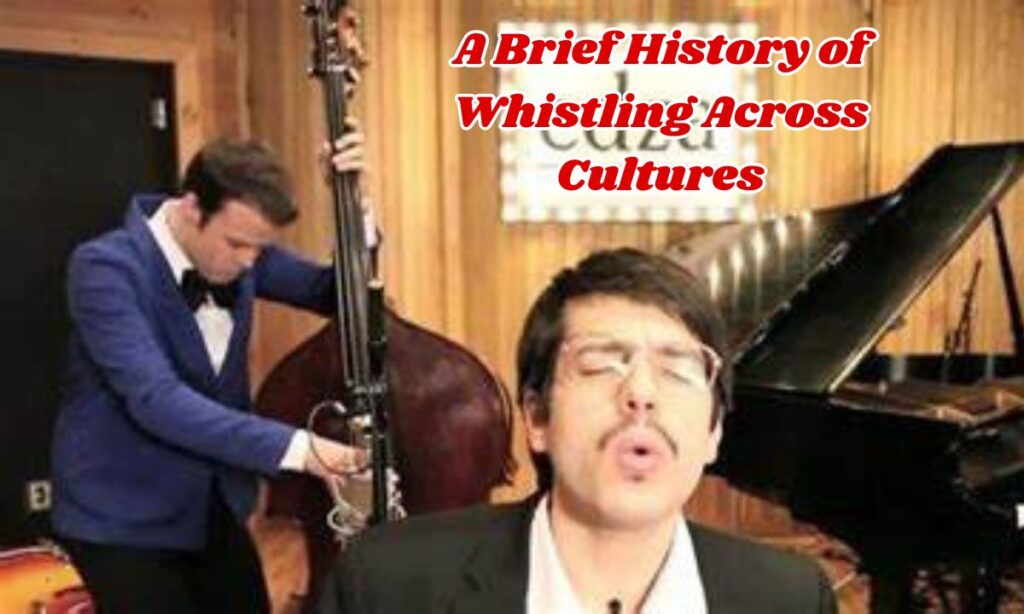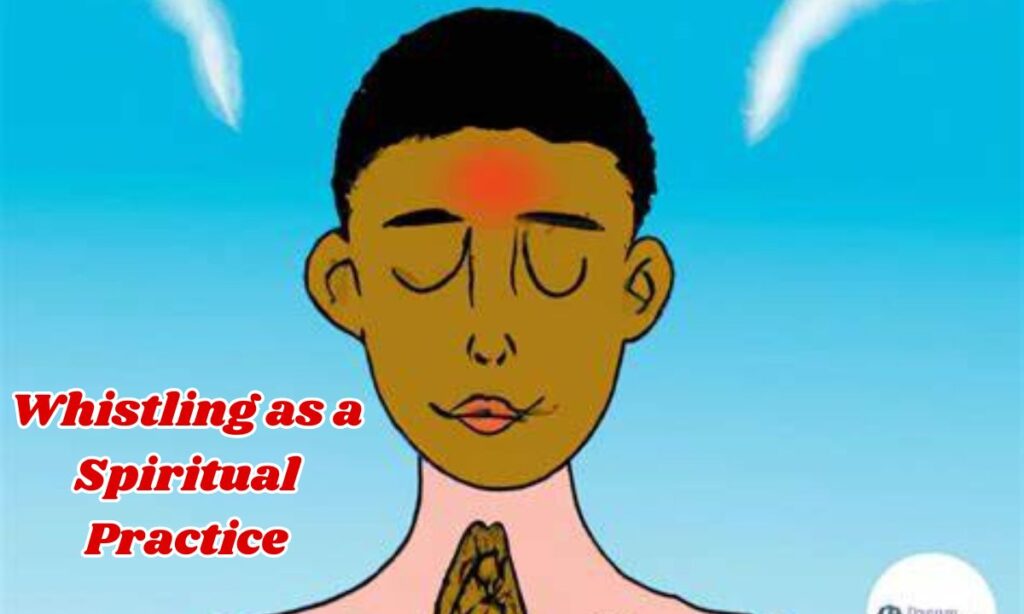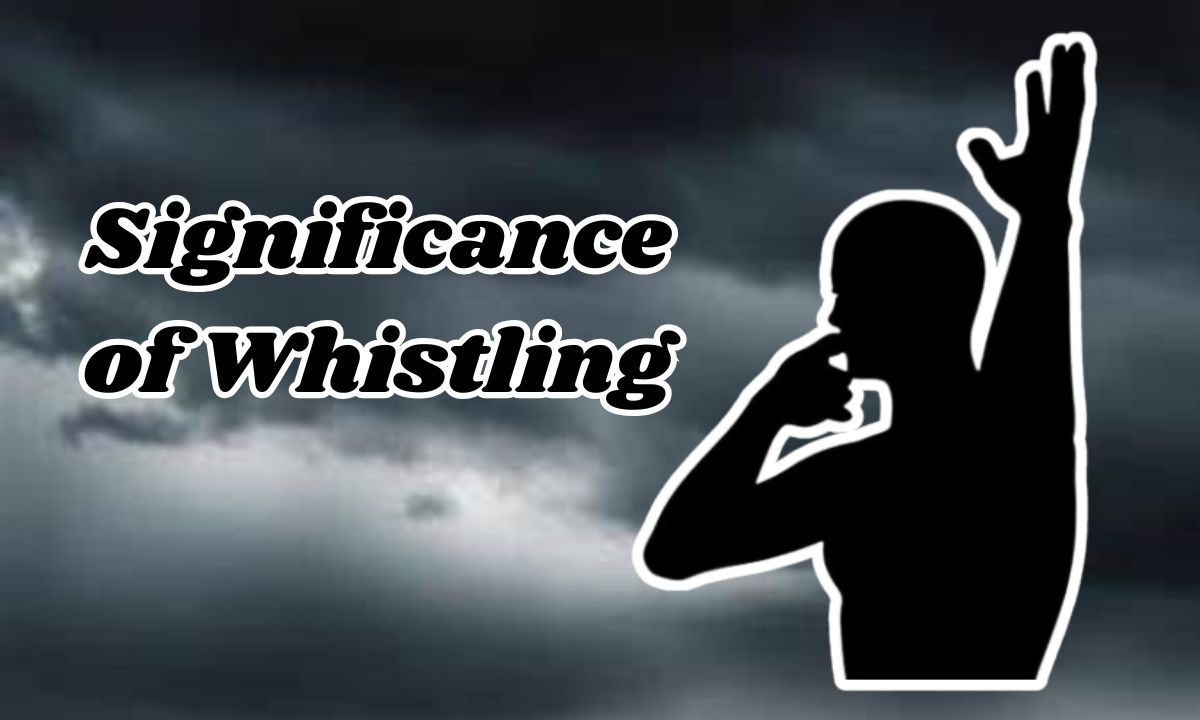Whistling, a simple yet profound act, holds a deeper connection to the spiritual and emotional realms than most people realize.
It is not just a casual sound, but rather a force of energy that bridges the physical and spiritual worlds.
In this comprehensive guide, we explore the rich spiritual significance of whistling across various cultures, traditions, and religions.
We also look at how whistling can serve as a tool for mindfulness, healing, and communication with the divine.
Let’s embark on a melodic journey to discover the mysteries behind this common yet spiritually rich practice.
The Whistle of the Soul: Introduction
Have you ever heard a whistle and felt an inexplicable sense of calm or inspiration?
The spiritual meaning of whistling is rooted in ancient traditions and practices that span across time and cultures.
From shamans using whistles to summon spirits to the whistling winds carrying divine messages, sound has always been a medium for connecting with the unseen.
But whistling is more than just a simple musical expression it is a channel of energy, a form of breath control, and an instrument for mindful practices.
Unfurling the Melodic Journey: A Brief History of Whistling Across Cultures

Throughout history, whistling has been more than just an idle pastime. It holds spiritual and communicative power in many cultures. Here are some notable examples:
- Ancient Greeks: Whistling was used during theatre performances as a form of applause.
- Romans: Shepherds developed a “whistle language” to communicate over long distances.
- Kuskoy Village, Turkey: A unique “bird language” based on complex whistling to communicate across the hills.
- Sailors and Cowboys: Whistling was often used for emotional expression and communication while alone at sea or across vast prairies.
- Inuit of Greenland: Women would whistle at the Northern Lights, believing it summoned spirits.
These historical uses showcase how whistling has transcended the role of mere sound-making, often functioning as a form of spiritual or practical communication.
Sonic Spirituality: The Connection Between Sound and Enlightenment
The spiritual significance of sound is a concept deeply embedded in numerous cultures worldwide.
Sound, and by extension, whistling, is believed to have the ability to affect both the mind and the spirit.
Sound creates vibrations that can influence our internal energy, emotions, and even physical well-being.
In Hinduism, for example, Lord Krishna’s flute is seen as a conduit to spiritual growth, where the sounds themselves elevate the soul.
Similarly, in Buddhism, sacred sounds are used to help practitioners enter deeper states of meditation.
Whistling, as a form of sound, carries these same spiritual vibrations. The sound of a whistle can be used to clear mental blockages, create a sense of peace, or align energy centers within the body.
Whistling: More Than Just a Melody

Whistling can be seen as an extension of the breath, the life force that sustains our existence.
In spiritual practices, breath is often considered the bridge between the physical and spiritual worlds. Whistling requires controlled breathing, and thus, becomes a symbolic act of spiritual control.
When you whistle, you are actively participating in the energy flow of your own body. Your breath moves through your lungs, across your vocal cords, and out through your lips.
This movement represents the movement of energy and can influence the vibrations around you.
The melodic tones that emerge from a whistle, therefore, carry emotional and spiritual significance.
Whistling Through World Religions
The religious significance of sound can be seen across many of the world’s spiritual traditions. Here are some examples of whistling in different religious contexts:
- Hinduism: Lord Krishna, often depicted playing a flute, symbolizes the spiritual connection between the divine and the earthly realms through music.
- Christianity: While whistling has sometimes been viewed as taboo or sacrilegious, in some Christian communities, whistling is seen as a means of worship, especially in choirs or hymns.
- Buddhism: Chants and mantras are forms of sound meditation that help connect practitioners with the divine. While whistling itself is not commonly a part of Buddhist tradition, the spiritual energy behind sound remains central.
- Islam: The Adhan (the call to prayer) is a sacred sound that connects the faithful to Allah. While whistling is not a part of Islamic ritual, the use of sound in calling the soul to worship is paramount.
Whistling as a Spiritual Practice: The Melody of Mindfulness

One of the most direct ways to connect with the present moment is through mindfulness practices.
Whistling can serve as a tool for mental relaxation and self-awareness.
By focusing on the sound produced by the whistle, you can practice mindfulness bringing your awareness to the breath, the body, and the surrounding environment.
Here’s how you can incorporate whistling into your mindfulness practice:
- Sit quietly, focusing on your breath.
- Take a deep breath and gently whistle, paying attention to the sound.
- Let the sound of the whistle guide your awareness, focusing only on the vibrations.
- When your mind begins to wander, gently return your focus to the whistle.
This practice can be particularly useful for those struggling with anxiety or stress, as it draws the mind away from distractions and into the present moment.
The Shaman’s Song: Whistles in Ancient Traditions
In shamanic rituals, whistling has been a long-standing tradition.
Shamans, the spiritual healers of indigenous cultures, have used whistles to communicate with spirits and the natural world.
In Siberia, bone whistles were considered sacred, believed to offer protection and spiritual guidance during journeys into the spirit world.
Shamans also used whistling as a method to enter trance-like states, facilitating their connection to the divine.
The vibrational frequencies of the whistle, often accompanied by chants or drumming, helped alter the shaman’s consciousness, allowing them to travel between the physical and spiritual realms.
The Harmonics of Healing: Whistle Your Way to Wellness
Sound healing, or the use of sound frequencies for therapeutic purposes, has seen a resurgence in recent years.
Whistling can be a part of sound therapy, aiding in relaxation, stress relief, and emotional balance.
Whistling affects the brain activity by stimulating the brain’s reward system, releasing endorphins the body’s natural mood elevators.
Research has shown that sound therapy can reduce levels of cortisol (a stress hormone), while promoting mental clarity and focus.
Additionally, breathing exercises that involve whistling can help regulate the body’s natural rhythms, improving overall cognitive functions and mental relaxation.
Melodic Myths: Superstitions Surrounding Whistles

Across the globe, whistling has been surrounded by various superstitions. Here are some of the most interesting:
- In Turkey, whistling at night is believed to attract spirits, both good and bad.
- In Ireland, it is thought that fairy-like beings communicate through whistles.
- In Eastern Europe, whistling indoors is thought to invite wealth and prosperity into the home.
- In certain African cultures, it is believed that whistling during the night can call on spirits to communicate with the living.
These beliefs reflect the deep connection people have to sound and how it is thought to influence the unseen world around them.
Feral Frequencies: Whistles in the Wild – Animal Spirituality
In the animal kingdom, many species use whistles as a form of communication. Birds, wolves, dolphins, and even elephants use whistles to convey messages to each other.
This connection to nature through sound is often seen as a reflection of the interconnectedness between humans and animals.
In many indigenous cultures, animals are seen as spiritual guides, and whistling can be a way to communicate with them.
In some cultures, whistling at animals is believed to help foster a connection between the human and animal worlds, creating a bond of mutual understanding.
The Soul’s Symphony: Famous Spiritual Whistles & Their Meanings

Famous spiritual whistlers and musical figures have used whistling as a symbol of emotion and spirituality in their work.
- Otis Redding: His iconic song “Sitting on The Dock of The Bay” features whistling as a powerful expression of longing and reflection.
- Bobby McFerrin: “Don’t Worry, Be Happy” incorporates whistling to evoke a sense of joy and carefree living, connecting emotional resonance with sound.
These musical pieces show how whistling, even in modern times, remains a potent symbol of emotional and spiritual connection.
Airborne Amen: Embracing the Power of the Pucker
Whistling is more than just a casual sound.
It is a spiritual practice that connects the body, mind, and soul. Whether used for mindfulness, healing, or communication, whistling is an instrument of spiritual expression.
By embracing the breath, sound, and vibration inherent in whistling, we unlock a deeper connection to ourselves and the universe around us.
So, the next time you hear the sound of a whistle in the wind or find yourself whistling a tune, take a moment to reflect on its deeper meaning.
What vibrations are you sending out into the world? And what energy is coming back to you in return?
Frequently Asked Questions
Spiritual meaning of hearing a whistle:
Hearing a whistle spiritually can symbolize a message from the spirit realm or a call to pay attention to one’s inner self.
Hearing whistling when no one is around spiritual:
This may be interpreted as a sign that spiritual guides are nearby, trying to communicate or offer guidance.
Hearing whistling at night spiritual meaning:
Whistling at night could be seen as a spiritual omen, often associated with messages from spirits or energies from other realms.
Spiritual meaning of whistling:
Whistling spiritually is often seen as a form of self-expression that connects the individual to higher realms, energies, or inner peace.
Whistling spiritual meaning:
Whistling can symbolize joy, spiritual connection, or the transmission of energy and positive vibrations.
Hearing whistling at night spiritual meaning:
Hearing a whistle at night could represent a spiritual presence or a warning to stay alert and aware of your surroundings.
Conclusion
In conclusion, whistling is far more than just a simple sound; it is a profound spiritual practice that connects us to the physical and metaphysical realms.
Across cultures and religions, whistling serves as a powerful tool for communication, healing, and mindfulness.
Whether used in ancient rituals, as a form of emotional expression, or for spiritual growth, its vibrational frequencies carry deep meanings.











